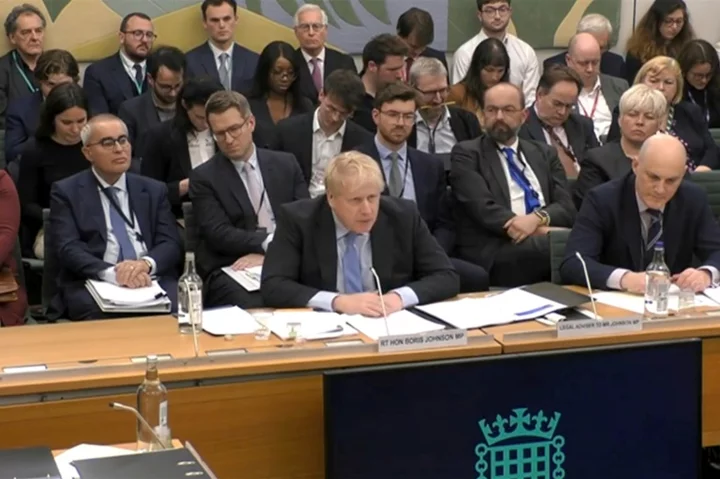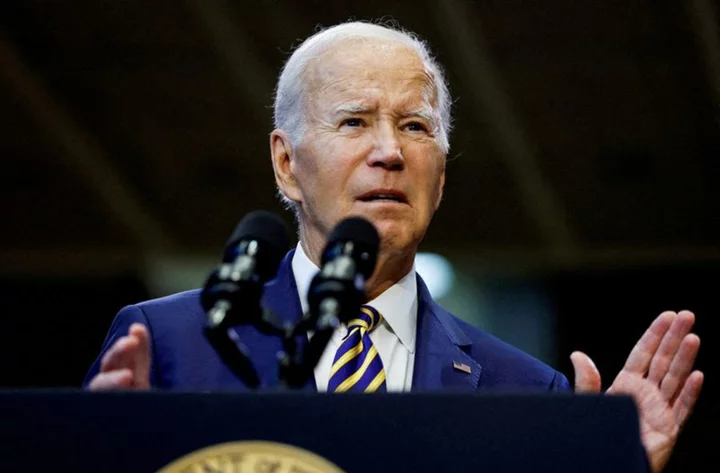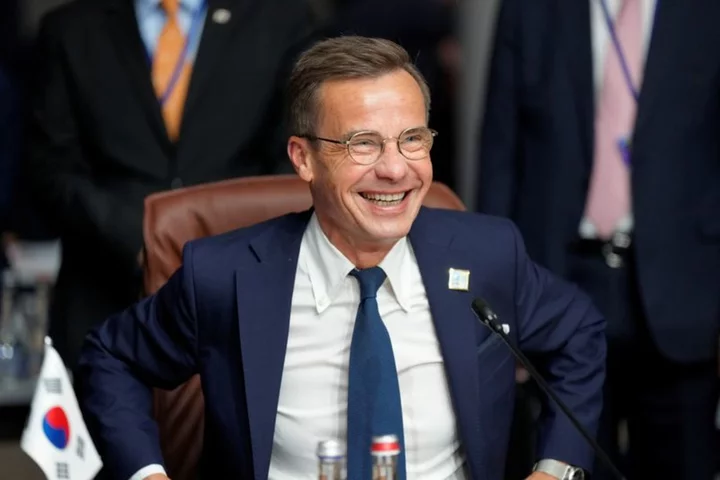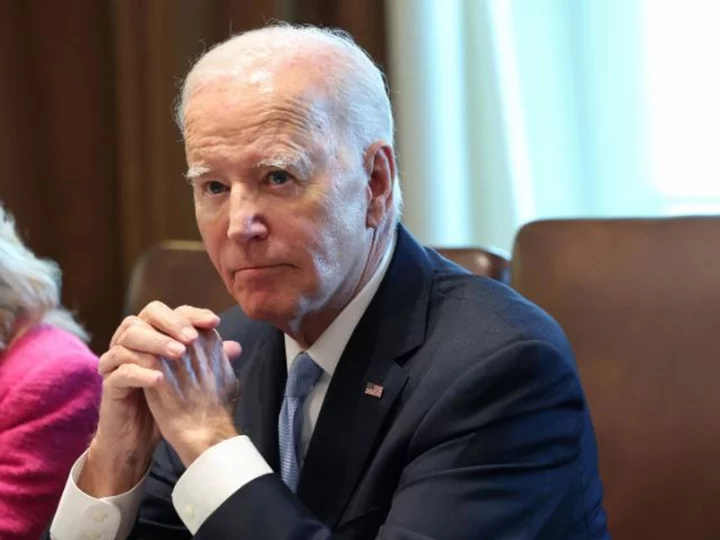Former British prime minister Boris Johnson's angry departure from parliament over Covid lockdown-breaking parties sparked fevered speculation Saturday over his and the current government's future, with allies and enemies trading barbs.
Johnson announced he was leaving as a member of parliament on Friday, claiming he had been forced out in a stitch-up by his political opponents.
The 58-year-old populist politician has been under investigation by a cross-party committee about whether he deliberately lied to parliament over parties when he was in office.
In evidence earlier this year, he insisted he had not.
But as the committee prepares to make public its findings, he said they had contacted him "making it clear... they are determined to use the proceedings against me to drive me out of parliament".
The Privileges Committee, which has a majority of MPs from his own Conservative party, has powers to impose sanctions for misleading parliament, including suspension.
Ordinarily, suspension of more than 10 working days leads to a by-election in the MP's constituency.
By quitting, Johnson avoids the consequences of a humiliating fight to remain an MP in his Uxbridge and South Ruislip constituency in northwest London where he holds a slim majority of just over 7,000.
He denounced the committee, chaired by veteran opposition Labour MP Harriet Harman, as a "kangaroo court".
"It is very sad to be leaving Parliament -- at least for now -- but above all I am bewildered and appalled that I can be forced out, anti-democratically... with such egregious bias," he said.
He claimed the committee's report, which has not been published, was "riddled with inaccuracies and reeks of prejudice", adding he had "no formal ability to challenge anything they say".
Their "purpose from the beginning has been to find me guilty, regardless of the facts", he said.
Responding to the resignation, the Privileges Committee said Johnson "impugned the integrity of the House by his statement".
- 'Good riddance' -
Johnson loyalist Nadine Dorries also quit as an MP, meaning current Prime Minister Rishi Sunak, whom Johnson partly blames for his downfall, faces two by-elections as his party languishes in the polls.
Johsnon's ability to generate strong feelings of admiration or hate was reflected in the reaction to his shock announcement.
The Daily Mirror likened him to "a criminal who refuses to come to court for his sentencing."
Labour's deputy leader Angela Rayner said the public -- battling a cost-of-living crisis -- had had enough of the "never-ending Tory soap opera" while her opposite number with the smaller Liberal Democrats, Daisy Cooper, said it was "good riddance".
But Johnson's supporters rallied behind him, lauding his achievements in pushing through Brexit and galvanising support for Ukraine.
Conservative-leaning tabloid The Sun hailed his "unique magnetism and historic achievements" which "dwarf those of the pygmies who set out to expel him as an MP and, appallingly, have succeeded".
- Revenge -
There was, however, widespread agreement that Johnson will remain a looming presence and a problem for Sunak.
"He may have resigned as MP but he made very clear in his statement that he does not see this as the end of his political career," the Times wrote.
The BBC added that "the ghost of Boris Johnson haunts Rishi Sunak. It is the last thing the prime minister needs".
Johnson led the Tories to a thumping 80-seat majority in the December 2019 general election on a promise to "get Brexit done".
That allowed him to railroad through parliament his divorce deal with the European Union, unblocking years of political paralysis.
But he was undone by his handling of the Covid pandemic, "Partygate" and a succession of other scandals that led to a ministerial rebellion in July last year.
He quit as prime minister and left office in September last year, though rumours persisted that he wanted another shot at the top job.
Sunak, who was one of Johnson's top team who quit, has been trying to steady the ship since becoming prime minister in October, after the turbulent tenure of his former boss and the short-lived premiership of Liz Truss.
Johnson's resignation will likely be seen as his revenge on Sunak, whose Tories are well down in the polls with a general election looming next year.
"When I left office last year the government was only a handful of points behind in the polls. That gap has now massively widened," Johnson said in his letter, lashing out at Sunak.
Johnson became an MP in 2001 until 2008, then quit to serve two four-year terms as London's mayor. He became an MP again in 2015, going on to be foreign secretary under Theresa May.
jwp/js









